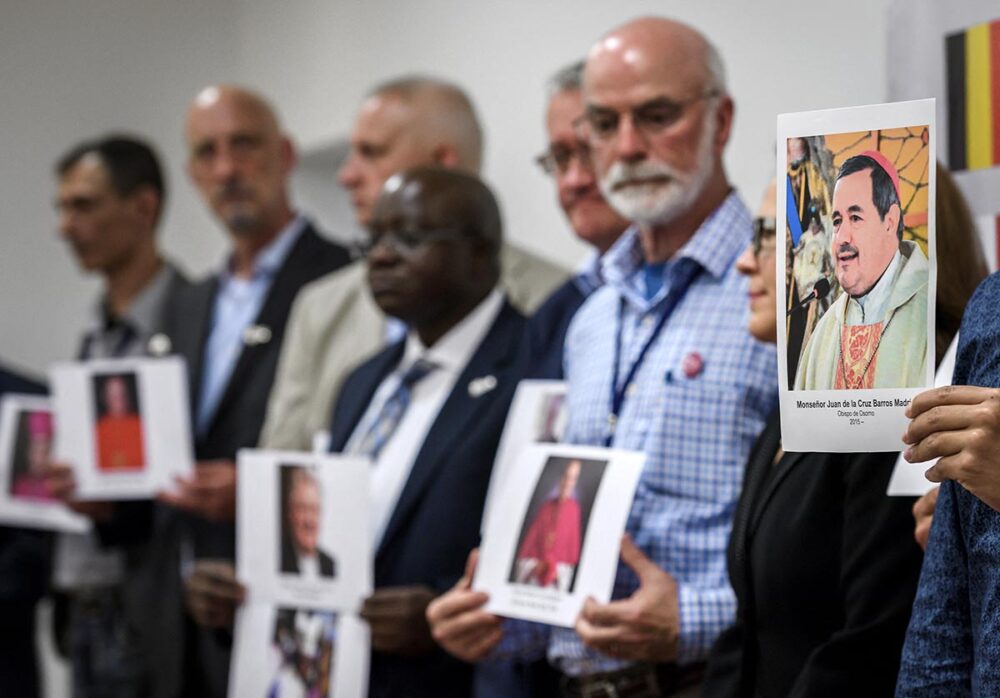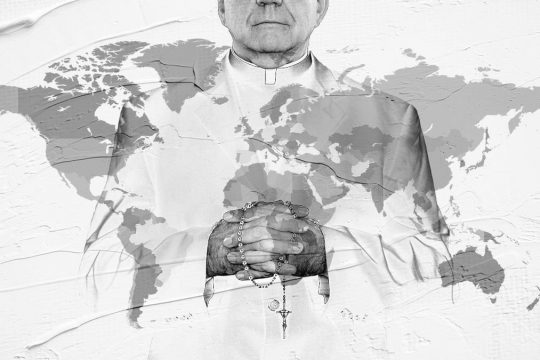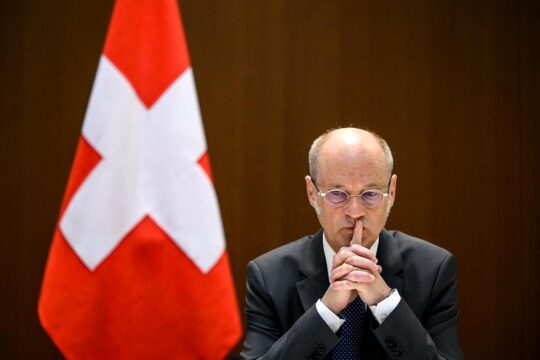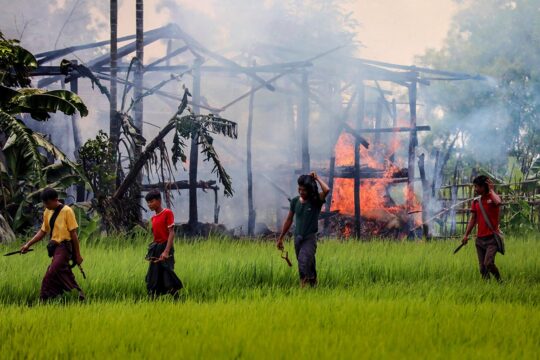It draws up a provisional inventory of 1,002 victims of sexual abuse committed by Catholic priests and members of the Swiss Church since 1950. Released on September 12 in Zurich, the “pilot project report on sexual abuse in the Roman Catholic Church in Switzerland since the mid-20th century” has triggered a series of reactions with as yet unknown consequences.
"Switzerland has done things in a different order from France: reparations commissions for victims already existed,” explains Astrid Kaptijn, professor of canon law at the University of Fribourg. “Various ecclesiastical bodies finally agreed to fund this study.” The study was entrusted to the University of Zurich. It was commissioned on April 4, 2022 by the Swiss Bishops' Conference, the Conference of Unions of Religious Orders and Consecrated Life Communities in Switzerland, the Roman Catholic Central Conference (which groups together the cantonal organisations), and was overseen by a board of six scientists appointed by the Swiss Historical Society "to guarantee the independent nature of the project and advise researchers who may have questions about access to archives, for example, or about Church procedures", explains Kaptijn, who was a member of the board.
For a year, the academics studied the archives of the Catholic Church. The study identified 1,002 cases of sexual abuse involving 921 victims between 1950 and 2022 - 56% boys, 39% girls (in 5% of cases the sex was not specified) - perpetrated by 510 perpetrators, the vast majority of whom were priests. 74% of the abuse was committed against minors and 14% against adults. The study should resume in January 2024, and further reports are expected in the next three years.
Witnesses forced to remain silent
This figure of one thousand could well open a Pandora's box. Historians point out that church sources could not be properly studied due to lack of certain documents, which had been destroyed, and that a request for access to archives was refused by the Holy See embassy and by the Vatican itself, concerning the opening of diplomatic files. "It became clear that Church officials ignored, concealed or minimised most of the cases of sexual abuse analysed up until the 2000s,” says the report. “In many cases, sexual abuse was put on a back burner, the accused were transferred, those involved and witnesses were forced to remain silent. In this way, Church leaders accepted that other situations of sexual abuse could occur."
“It was high time for such a study," says Jacques Nuoffer, President of Groupe Sapec, a Swiss association that supports people abused “in a relationship of religious authority”. “It confirms what we have been observing and even experiencing for decades. The Church authorities covered up their crimes, supported the abusers and protected the reputation of their institution, to the detriment of the victims, who were reduced to silence," continues Nuoffer, who has been fighting since 2009 to ensure that victims, of whom he is one, are heard. He estimates their number to be at least 10,000 in Switzerland. In France, the number of victims has been estimated at over 330,000.
"Admittedly it's a small number, but it gives an idea of the scale of the abuse in Switzerland," says Kaptijn.
“In my opinion, the psychological impact of this study on the victims will be very important, even fundamental," agrees criminal lawyer Joëlle de Rham-Rudloff. “Media coverage of this report will send a message to victims that they are not alone, which may give them the courage to report abuse and make the authorities more attentive to their reporting, even though it is already possible in Switzerland to contact the Centre d'aide aux victimes d'infractions on this issue.”
Unlike France, where it was the recommendations of a commission called Ciase that led to the creation of compensation bodies (the INIRR and the CRR), Switzerland saw the creation in 2016 of a Commission for Listening, Conciliation, Arbitration and Reparation, Cecar, on the initiative of the Sapec Group, Swiss Catholic institutions and members of parliament. A year earlier, a compensation commission had been set up by the Swiss Bishops' Conference. According to the report, "up to the beginning of 2023, compensation had been paid in 168 cases, totalling 2.5 million Swiss francs from the compensation fund set up for this purpose". This fund is financed by various bodies within the Swiss Church. The president of Cecar, Liliane Gross, says 14 people received compensation in 2022 for an average amount of CHF15,000 (around 15,650 Euros).
Immediate reaction from the Church
When the report was published, Swiss Catholic institutions announced a number of measures, including the creation of a national body to receive and listen to victims of sexual abuse in the Church. "There is no need to set up yet another special commission,” says de Rham-Rudloff. “Victims can really get confused, and it seems unrealistic for an abused person to want to turn to a commission set up by an institution that has covered up the abuse they suffered."
This lawyer wants to make existing recourse better known to victims. “Since 1997,” she says, "the 26 Swiss cantons have been obliged to open 'Lavi centres', where specially trained psychologists, paid by the State, receive victims of any physical, psychological or sexual abuse, offer to pay for a certain number of hours of legal representation, and accompany victims to court hearings so that they can assert their rights and seek legal redress. Everything is free of charge. As soon as a victim lodges a complaint, the police and criminal authorities are obliged to inform them of the existence of these centres.” In addition, she adds, there is a “Lavi Compensation Authority”, which allows victims to obtain partial financial compensation for the abuse they have suffered (moral harm and certain other damages) in the case of insolvent abusers.
The criminal lawyer thinks this system can help victims rebuild their lives: "Victim status is recognised so that victims can assert their rights and receive compensation, even if this is only partial. It also happens that an abuser who is arrested and questioned in the proceedings finally admits the facts and apologises, which can also greatly help victims in their healing process.
Sanctioning those who knew?
De Rham-Rudloff believes the report invites Swiss law to evolve in terms of the judicial response. "How can we punish those that are responsible not for direct abuse, which is already punishable under Swiss law, but who knew and said nothing, or those who moved the abusers to other places? We're going to need a uniform, large-scale response from the courts on this issue.” This is all the more important given that Swiss law does not lay down any obligation to denounce the criminal actions of private individuals. "Can we sue the Church? But which entity?" she asks, pointing to the complexity of the religious landscape, which is highly fragmented, combining four languages and a multiplicity of institutions, sometimes within the same canton.
The State has also delegated certain teaching tasks to religious institutions, which raises the question of its responsibility for violations committed within them. The criminal lawyer says the publication of this study sets a precedent. "This is the end of impunity within the Church. Potential abusers will have to curb their inclinations, and the Church will have to put in place protocols for reporting and dealing with cases. It no longer has a choice if it wants to restore trust in the institution.”
According to the report, the Swiss Church has not applied canon law consistently and has conducted few investigations and trials. Following publication of the report, the Bishops' Conference announced its intention to create an ecclesiastical criminal and disciplinary tribunal for the Church in Switzerland. This is an important decision, according to Kaptijn, but "there is no question of removing priests and clerics from the jurisdiction of the State. Canonical justice does other things: it can de-frock a guilty priest, for example". She points out that such a tribunal would need authorisation from Rome.
Towards a French-style commission?
"The conclusions of the Swiss report are broadly in line with those of the Ciase report," says Kaptijn, who was also a member of the French commission headed by a senior civil servant, Jean-Marc Sauvé. "The mechanisms it denounces are the same: sending priests abroad, not believing the accusations, stressing the importance of the Church for families, and so on. But the way of working was different. The [Swiss] historians did not have much contact with the victims. It was mainly a question of probing the archives to get an idea of the scale of the abuse."
Indeed, a French-style commission was "not what the bishops chose" to start with, explains Nuoffer from Groupe Sapec. “They wanted a pilot study conducted by academics. We, the victims' associations, made it clear that we wanted a quantitative survey." And the report’s authors also emphasise that this study is a pilot, intended "to serve as a basis for future research into sexual abuse committed by members of the Catholic clergy and Church employees". They recommend "commissioning a large-scale quantitative and sociological survey of sexual abuse in the context of the Swiss Catholic Church, along the lines of the Ciase study conducted in France".
"The fact that the University of Zurich is in charge is interesting because these investigations are evidence that abuses are taking place,” says Jean-Pierre Massias, professor of public law at the University of Pau and president of the Institut francophone pour la justice et la démocratie. “But obviously the Sauvé model [French commission] is ideal because it includes hearing the victims. It's a model that shocks, because no one can turn a blind eye these days to the scale of abuse.”








